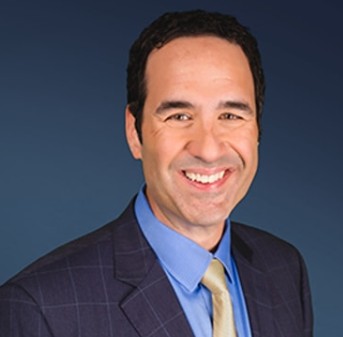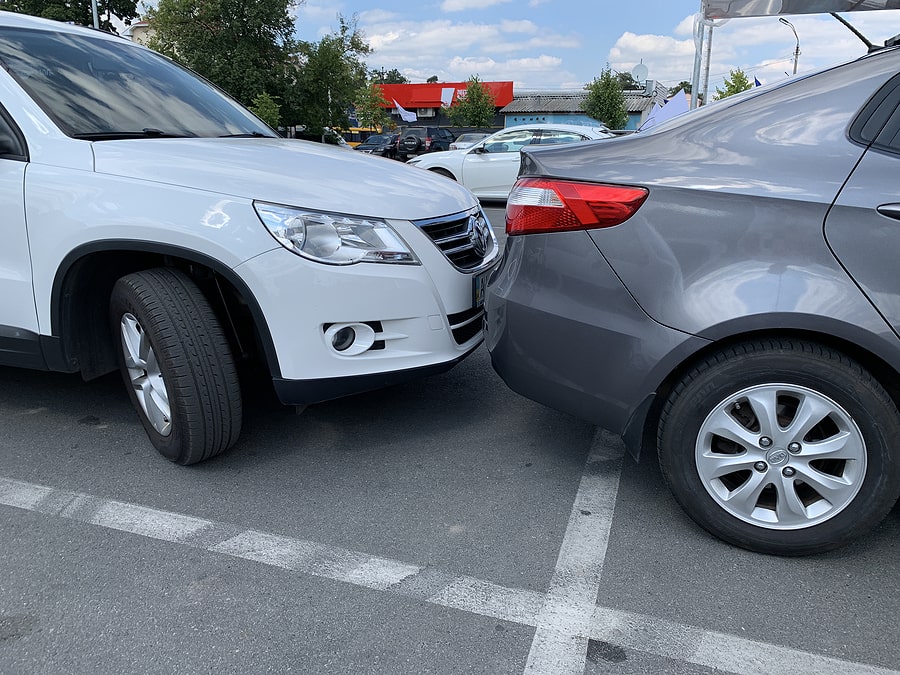While big trucks remain vital to the transportation of goods across the country, they also pose a substantial accident risk to other people on the road. In 2017, almost 5,000 accidents involving semi-trucks and buses resulted in fatalities. ,116,000 big truck and bus accidents left victims with serious, life-altering injuries. Most of the fatalities in those accidents were the occupants of passenger vehicles, not the truck or bus drivers.
Semi-truck accidents can result in a wide range of injuries, including:
- traumatic brain injury
- amputations,
- spinal cord damage,
- burns,
- broken bones,
- and organ trauma.
If you suffered serious injuries in a semi-truck accident, you may need to seek compensation in the form of a personal injury claim. Often, the insurance company will refuse to pay for the full cost of your injuries. You may need to consult with an experienced truck accident lawyer to better understand the answers to several common questions following a semi-truck accident, including: Who — or what — exactly is the entity responsible for the accident? In the case of a semi-truck accident, you may wonder who bears more responsibility for the accident: the driver or the trucking company. The answer can be quite complicated.
Respondeat Superior
Under respondeat superior, a Latin phrase that means “let the master answer,” employers bear responsibility for actions committed by their employees under the scope of their normal job responsibilities. Respondeat superior assumes that the employee committed those acts unintentionally. A driver who deliberately caused a crash, for example, would not fall under this statute. However, the principle does not include every truck accident. Working with a lawyer can help you more effectively determine who bears responsibility for your accident.
Determining Who Bears Liability
After a truck accident, you may automatically assume that respondeat superior applies, and the company who employs the driver should pay for the expenses associated with your accident. Most of the time, having the company take responsibility means a better outcome for the victim of the accident and the truck driver. Large companies often have more funds available and the means to investigate the accident fully. When the company takes responsibility for the accident, it can alleviate some of the pressure on the truck driver and provide better compensation for the accident victim. However, perhaps you will find yourself dealing with the truck driver’s personal insurance company, instead.
So, who really bears liability? Each case may vary, and working with a lawyer will help you determine who bears liability in the case of your accident. Carefully consider the following scenarios:
Dealing with Contractors
- The driver contracts independently for the trucking company, rather than the company employing the driver directly. As an independent contractor, the driver always bears responsibility for their decisions, and the company probably will not pay the bill or accept legal responsibility. The truck driver accepts responsibilities as a self-employed individual. Drivers who drive on contract, rather than as employees, typically own their truck. They are responsible for maintenance of the vehicle and for any accidents that occur as they drive. Most of the time, contractors also carry an insurance policy designed to provide full protection in the event of a serious accident.
- The trucking company, regardless of a contracted driver, provides the vehicle, and maintenance for that vehicle. Imagine that a contracted employee drives for a company in a vehicle the company chose. The trucking company determines the driver’s route as well as covering any needed maintenance on the vehicle. Unfortunately, the trucking company chooses to put off needed maintenance on a vehicle. It fails an inspection, but the company does not take necessary steps to make it road-worthy, causing a serious accident. It needs new tires, but the company chooses to wait to replace them, causing an accident. The vehicle has mechanical problems that the company knew about and ignored, causing an accident. If the company’s negligence caused the accident, the company may still bear liability for the accident.
- The trucking company has unrealistic requirements for its drivers. Drivers can spend a maximum of ten hours behind the wheel after taking at least eleven consecutive hours off. Unfortunately, many trucking companies have policies that force drivers to go beyond those requirements. The company may push its drivers to get through a specific number of miles a day, without leaving time for stops or for traffic flow problems. Drivers may even receive encouragement to make edits to their logbooks or to ignore the hours that they should spend on the road, as long as they meet those deadlines. Companies may issue threats of using other contractors or levy fines and penalties for drivers who fail to reach their destination on time. If the company pushes the driver unnecessarily or sets unrealistic expectations, that company may still bear some responsibility if the driver causes an accident with injuries.
A Driver Employed by the Trucking Company
When a driver employed by the trucking company causes an accident, the trucking company usually takes on responsibility for that accident. In some cases, however, the company may shift liability back to the driver.
- The driver caused an accident off the clock. The driver did not cause an accident while driving for the company; instead, the driver caused an accident while taking care of personal responsibilities. For example, the driver unhooked the truck from its trailers, took the truck itself to a restaurant for dinner, and caused an accident while backing out of a parking space, the company may not bear responsibility for any injuries that occurred in that accident.
- The driver caused an accident deliberately. The driver had a serious case of road rage and chose to run another vehicle off the road after it pulled over in front of the driver earlier in the journey. Perhaps the driver saw a rival driver with whom they quarreled before and chose to cause an accident. Any time a driver chooses to cause an accident deliberately, that driver bears personal responsibility for any injuries and property damage caused by the accident. On the other hand, the company may still bear liability if the company knew the driver had a history of violence or caused other accidents in the past, and the company chose to continue to employ the driver anyway. Talking with a lawyer can help better determine liability in this instance.
- The driver caused the accident while on the clock and while pursuing normal job responsibilities. When a driver causes an accident on the clock, while performing tasks in their job description, the company often accepts responsibility for that accident. A driver employed by a the trucking company who is on the clock, often allows for a straightforward resolution and determination of liability. This includes accidents where the driver checked a cell phone or ate, causing distraction; accidents where the truck spun out of control or poor weather conditions caused an accident; and accidents where mechanical failure led to serious problems for the driver, resulting in an accident.
Other Parties Who Could Bear Responsibility
In some cases, neither the driver of the truck nor the company that employs the driver will bear responsibility for the accident. Other potential factors could change liability and change which entity must cover your expenses and pay your damages.
- The cargo loader failed to properly secure materials on a big truck. In some cases, falling or shifting cargo can seriously impair a driver’s ability to safely carry the cargo to its destination. When a falling box or other large object causes an accident or damage to another vehicle, the cargo loader may bear responsibility.
- The vehicle manufacturer. When a new truck hits the road for the first time, it should operate smoothly. Unfortunately, sometimes manufacturer defects can cause serious hazards on the road. If a manufacturer defect leads to an accident, the manufacturer may share liability for the accident.
Why Does It Matter Who Bears Liability?
In an ordinary accident with a semi-truck, you may assume that filing a claim with the insurance company presented by the driver at the time of the accident will get you the compensation you need for your injuries. This will indeed help get compensation for any property damage caused by the accident. You may, for example, have a replacement vehicle paid for if the accident totaled your vehicle. However, simply contacting the insurance company provided by the driver may not help you gain the full compensation you deserve for your injuries. Contacting a lawyer can help you more effectively determine exactly what compensation you deserve for your injuries. However, you may file for the following:
Medical expenses. In addition to property damage, you can file a claim for medical expenses associated with the accident. The insurance company may automatically offer compensation for your medical bills, or you may need to file a specific claim that lists all of the damages associated with the accident. This might include:
- Physical therapy expenses
- Modifications to your home or vehicle to account for permanent or long-term injuries
- The cost of hospitalization, including surgeries
- Medications to manage pain or combat infection from your injuries
- Ambulance transport
- The cost of qualified nursing care, if you need assistance
Lost wages. Did your accident cause injuries that made it necessary for you to miss time at work? You may include lost wages as part of your claim. Coverage for lost wages can make it easier for you to take care of your bills and expenses in spite of the lost time at work after your accident.
Lost earning potential. Working with a lawyer can help you better calculate how the accident could impact your future earnings. When you suffer permanent injuries that prevent you from returning to your former type of employment, claiming lost earning potential can make it easier for you to pay your bills while you pursue another type of employment. Compensation for lost wages can also help you pay for the cost of future training, including a new degree or certification.
Pain and suffering. When calculating pain and suffering, the insurance company may use a specific scale based on the amounts associated with your other damages. A lawyer, however, can help you better calculate pain and suffering, including factors like the embarrassment you suffered as a result of your injuries and the activities you had to miss because of your injuries.
Saving Time and Money
In addition to helping you decide how to pursue compensation for the full cost of your injuries, identifying the responsible party can help save you time and money as you pursue your claim. If you file with the wrong party—filing with the trucking company instead of a contracted driver or a driver who caused the accident off the clock, for example—you may waste valuable time. Filing with the wrong insurance company can delay your ability to get funds in your hands after the accident. If you accidentally file with the wrong entity, you may even have your claim denied.
How Can You Determine Liability?
In some cases, you may struggle to identify who bears liability for your accident and, therefore, for your injuries. You may have questions to answer before determining who bears liability. Working with a lawyer can help you more effectively determine exactly who bears liability for your accident. That attorney can do some research, determine whether the truck driver drove independently or as an employee of the company, and even evaluate what other factors may have led to the accident. By working with a lawyer, you can also substantially streamline the process of getting the compensation you deserve in your hands.






